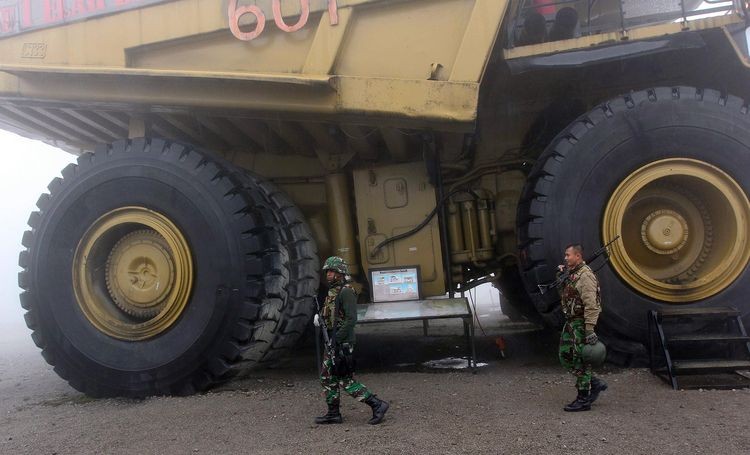Popular Reads
Top Results
Can't find what you're looking for?
View all search resultsPopular Reads
Top Results
Can't find what you're looking for?
View all search resultsIndonesia's flip-flop policy on Freeport to damage investment climate: Experts
Change text size
Gift Premium Articles
to Anyone
T
he government’s policy flip-flop in the mining sector, which has led to a prolonged dispute with gold and copper miner PT Freeport Indonesia, will likely damage the country’s investment climate, in the long run, should there be no good will to accommodate the interests of all stakeholders, experts and analysts have suggested.
The subsidiary of the American mining giant Freeport-McMoRan Inc. has been in a deadlock over its operations as the government demands a conversion of its contract of work (CoW) signed in 1991 into a so-called special mining license (IUPK), a move that will automatically annul the company’s longterm investment stability guarantee provided in the CoW.
While many scholars and activists have shown their support for the government’s tough stance, particularly in the name of nationalism, others have also commented that such a move will badly affect Indonesia’s investment climate as it has been proven to be plagued with uncertainties.
Ridho Kresna Wattimena, a mining expert with the Bandung Institute of Technology (ITB), said that Freeport Indonesia had invested a large amount of money developing the underground mine at the Grasberg site in Papua, the world’s largest gold mine and second-largest copper mine, by using the block caving method.
“The block caving itself can cost from US$2 billion to $10 billion. However, by using this method, a miner could spend 15 years just to make the tunnels and disburse 70 percent of its capital without getting anything in return,” Ridho said during a discussion held by the Indonesian Mining Association (IMA) on Monday.
(Read also: Freeport gets red-carpet treatment, again)
Ridho said it was natural for Freeport Indonesia to demand a long-term investment stability guarantee as the development of an underground mine would take a long time and was riddled with risks.
Freeport Indonesia has operated the Grasberg open pit facility since 1988. It is estimated that, as of today, the company has mined 1.7 billion tons of the 3.8 billion tons that are Grasberg ’s total mineral reserves.
Under the CoW, the miner is initially required to sell 51 percent of its stake by 2011, or 45 percent if it has sold a minimum of 20 percent in the local stock market.
However, a string of regulations were issued along the way that eventually allowed Freeport Indonesia to dodge the requirement until the government reversed its course earlier this year.
Center for Indonesia Taxation Analysis (CITA) executive director Yustinus Prastowo said both the Indonesian government and Freeport Indonesia should sit together and talk through their differences wisely, especially the ones related to divestment.
At present, Freeport-McMoRan owns 90.64 percent of the company, while 9.36 percent is owned by the government.










